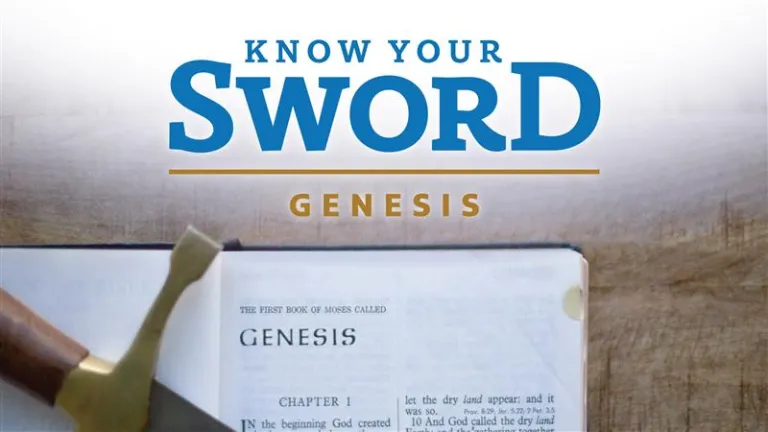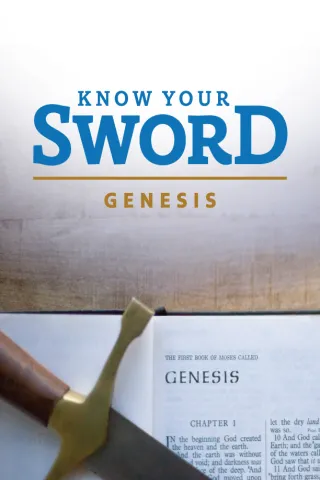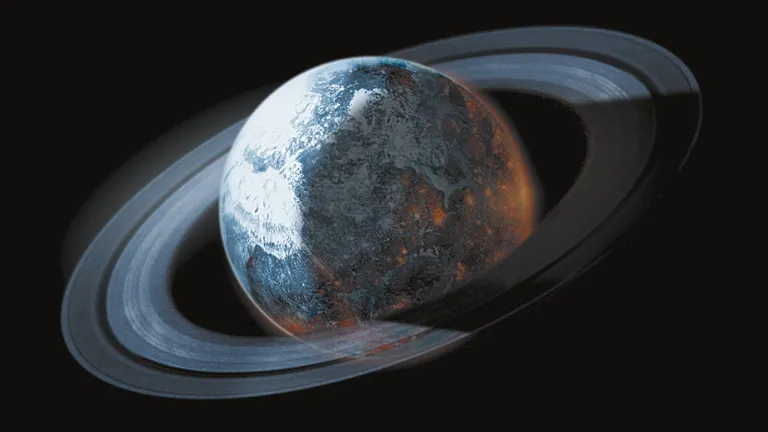Genesis Part 003

Genesis 1:2 says that “The earth became without form and void.” Did God create the earth this way? If not, how did this happen?
Have you heard of the “gap theory?” This is the notion that there is time between Genesis 1 verse 1 and 2. From this creation week of Genesis 1 and continuing to the modern day, we understand that there has been approximately 6,000 years of human existence. If scientists are correct in their dating, how can we understand the dating of a much older universe and earth? Verse 1 of the Bible clearly tells us that God created the heavens and the earth. Verse 2 then says, “The earth was without form, and void . . .” The word “was” in the Hebrew is “hayah" (H1961) meaning “to be, become, to come to pass.” This word is extremely common and shows up in the Bible 3,502 times.
Here are a few examples of this word:
- Genesis 1:3, “Then God said, “Let there be (H1961) light”; and there was light.”
- Genesis 2:7, “And the LORD God formed man of the dust of the ground, and breathed into his nostrils the breath of life; and man became (H1961) a living being.”
- Genesis 4:2, “Then she bore again, this time his brother Abel. Now Abel was (H1961) a keeper of sheep...”
- Genesis 4:3, “And in the process of time it came to pass (H1961) that Cain brought an offering of the fruit of the ground to the LORD.”
With the understanding of this word, we can translate verse two as, “The earth 'became' without form and void.” So the language of Genesis 1:2 could be understood to mean not that the earth was originally “without form and void” but, rather, became that way. And, indeed, this is what happened, as we will see.
The Hebrew for “without form and void” here, tohu va bohu, could also be rendered “waste and chaos.” That this was not the state of God’s initial creation can be seen from Isaiah 45:18, which states,
“For thus says the Lord, who created the heavens, who is God, who formed the earth and made it, who has established it, who did not create it in vain, who formed it to be inhabited.”
The word rendered “vain” here is tohu—the same word from Genesis 1:2 signifying a wasted condition. God, therefore, did not create the earth in a state of waste and confusion. It became that way—evidently in the wake of the angelic revolt led by Satan (compare Revelation 12:4; Isaiah 14:12-14; Ezekiel 28:12-15; Luke 10:18). Thus, the creation account that then follows is actually the account of the renovation of the earth in preparation for the creation of man (compare Psalm 104:29-30).

Another point in favor of this theory is that the Bible doesn’t specify the creation of water during the seven days of creation. It was already there, and we first read of water when God’s Spirit is moving over the water as He begins creation (Genesis 1:2).
It’s also possible that the dating of scientists is off due to components that they haven’t factored into the equation. For example, what would the extra pressure from flood waters pressing down on the earth change? Is it possible that the earth pre-flood had a different atmosphere and conditions when humans lived much longer on the earth? Did God change those conditions after the flood resulting in shorter life spans and changes to how dating/half-lives are determined? We don’t know for sure, but it is possible. Faith is required to believe that God exists and that He did what He said He did!
Throughout Genesis 1, the creation is seen as the product of the deliberate, reasoned and purposeful act of a supreme Creator God. This stands in sharp contrast to the creation fables of Israel’s neighboring nations. Those nations manufactured creation epics that had gods ruling the universe yet not having created it. In their epics, the universe had always existed, but in a chaotic state—the job of the gods being to bring some degree of order to the primeval chaos. In some pagan creation epics, the gods did create the universe but only after falling into a drunken state—hence creating by accident! In other pagan creation epics the universe emanated from the gods, growing out of their bodies. Clearly the Genesis creation account stands apart from the creation epics of pagan religions and can in no way be said to be derived from or based on them.
Tomorrow we will continue our look at the creation story in Genesis.
UYA Team | uya@ucg.org
United Young Adults (UYA) primarily serves the 18–32-year age group for the United Church of God. There are three main areas of contribution to the lives of the young adults: Promoting Spiritual Growth, Developing Meaningful Relationships and Making the Most of Your Talents. The Know Your Sword series is a daily expository message introducing God’s Word from a trusted perspective.
Please see the UCG Bible commentary for more information on Genesis 1:1-2:4.





